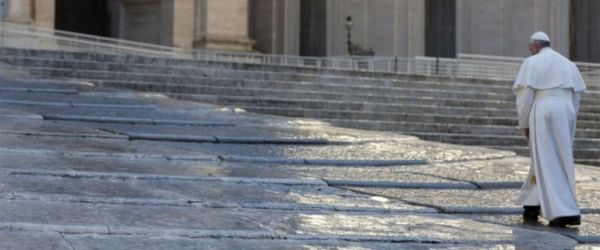Mt 25:1-13 indicates the condition that would allow us to enter the Kingdom of Heaven, and it does so with the parable of the 10 virgins: it is about those maiden brides who were designated to welcome and accompany the bridegroom to the wedding ceremony and, since at that time it was customary to celebrate the ceremony at night, the maiden brides were provided with lamps. The parable states that five of these maidens are wise and five are foolish: indeed, the wise ones have brought oil for their lamps, while the foolish have brought none. The bridegroom’s arrival is delayed and they all fall asleep. At midnight the bridegroom’s arrival is announced; at that moment the foolish maidens realize they have no oil for their lamps, and they ask the wise ones for some. But the latter reply that they cannot give them any because there would not be enough for everyone. Thus, while the foolish maidens go in search of oil, the bridegroom arrives; the wise maidens go in with him to the marriage feast and the door is shut. The five foolish maidens return too late; they knock on the door, but the response is “I do not know you” (v. 12), and they remain outside.
What does Jesus wish to teach us with this parable? He reminds us that we must be ready for the encounter with him. Many times, in the Gospel, Jesus exhorts keeping watch, and he also does so at the end of this narrative. He says: “Watch therefore, for you know neither the day nor the hour” (v. 13). But with this parable he tells us that keeping watch does not only mean not to sleep, but to be ready; in fact all the maidens are asleep before the bridegroom’s arrival, but upon waking some are ready and others are not. Thus, here is the meaning of being wise and prudent: it is a matter of not waiting until the last minute of our lives to cooperate with the grace of God, but rather to do so as of now. It would be good to consider for a moment: one day will be the last. If it were today, how prepared am I? But I must do this and that.... Be ready as if it were the last day: this does us good.
The lamp is a symbol of the faith that illuminates our life, while the oil is a symbol of the charity that nourishes the light of faith, making it fruitful and credible. The condition for being prepared for the encounter with the Lord is not only faith, but a Christian life abundant with love and charity for our neighbour. If we allow ourselves to be guided by what seems more comfortable, by seeking our own interests, then our life becomes barren, incapable of giving life to others, and we accumulate no reserve of oil for the lamp of our faith; and this — faith — will be extinguished at the moment of the Lord’s coming, or even before. If instead we are watchful and seek to do good, with acts of love, of sharing, of service to a neighbour in difficulty, then we can be at peace while we wait for the bridegroom to come: the Lord can come at any moment, and even the slumber of death does not frighten us, because we have a reserve of oil, accumulated through everyday good works. Faith inspires charity and charity safeguards faith.
May the Virgin Mary help our faith to be ever more effective through charity; so that our lamp may already shine here, on the earthly journey and then for ever, at the marriage feast in heaven.
[Pope Francis, Angelus 12 November 2017]












